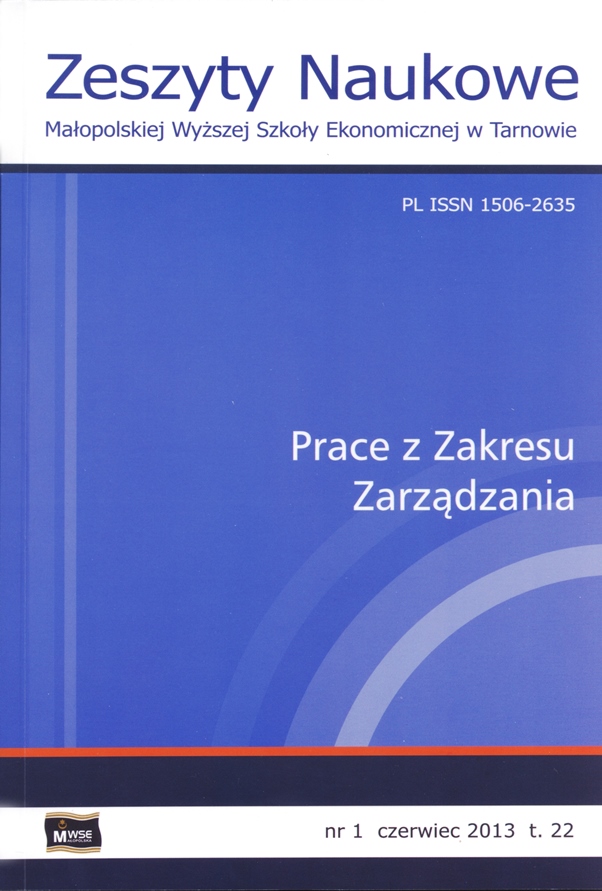Abstract
The primary purpose of management – among the general theoretic and practical positions – is developing, making and organizing the implementation of optimal management decisions. The article provides an analysis of currently operating method of development and making of management decisions. On the basis of this study, it is concluded that the role of management employees in this process is quite passive. The effective economic activity depends first of all on intellectual, creative and professional potential of all employees, both leaders and functional managers as well as other specialists that are able to come up with creative ideas, develop and implement them. An organization conducts the activity as successfully as enterprising and competent are its employees. Under these terms it follows to completely change the management decisions development and making process both in relation to organization of this process and stimulation of management professionals’ participation. In principle the new stages of the suggested model of management decision development are the following: attraction of subordinates to the exposure of problem in the organization activity; competition between management employees for a right to develop management decisions; informing the subordinates by a leader about the criteria of evaluation of the decision project quality; proper financial and nonfinancial stimulation of authors of the decision selected for implementation.
References
Kozioł L., Piechnik-Kurdziel A., Kopeć J., Zarządzanie zasobami ludzkimi w firmie. Teoria i praktyka, Biblioteczka Pracownicza, Warszawa 2006. ISBN 83-88616-75-7.
View in Google Scholar
Moczydłowska J., Zarządzanie zasobami ludzkimi w organizacji, Difin, Warszawa 2010. ISBN 978-83-7641-252-8.
View in Google Scholar
Pocztowski A., Zarządzanie zasobami ludzkimi. Strategie, procesy, metody, Polskie Wydawnictwo Ekonomiczne, Warszawa 2008, ISBN 83-208-1468-5.
View in Google Scholar
Rostkowski T., Nowoczesne metody zarządzania zasobami ludzkimi, Difin, Warszawa 2004. ISBN 83-7251-445-3.
View in Google Scholar
Sajkiewicz A., Nowe metody pracy z ludźmi. Organizacje procesów personalnych, Poltex, Warszawa 2002. ISBN 83-88840-12-6.
View in Google Scholar
Минцберг Г., Структура в кулаке: создание эффективной организации, Питер, Санкт-Петербург 2004. ISBN 5-318-00285-4.
View in Google Scholar
Петренко С.А., Інтеграційні системи управління як джерело підвищення конкурентоспроможності підприємства, „Академічний огляд” 2010, no. 1.
View in Google Scholar
Третьякова Е., Структура и технология управления организацией: концептуальный поход, „Проблемы теории и практики управления” 2008, no. 4.
View in Google Scholar
Питерс Т., В поисках эффективного управления, Прогресс, Москва 1986.
View in Google Scholar
Саати Т.Л., Принятие решений при зависимостях и обратных связях: Аналитические сети. Decision Making with Dependence and Feedback, ЛКИ, Москва 2008. ISBN 978-5-382-00422-8.
View in Google Scholar
Лепейко Т.І., Миронова О.М., Управління персоналом підприємства в умовах невизначеності (поведінковий підхід), ХНЕУ, Харків 2010
View in Google Scholar
Кирхлер Э., Шротт А., Психология труда и организационная психология, t. 4, Принятие решений в организациях, Гуманитарный центр, Москва 2004. ISBN 978-966-8324-58-1.
View in Google Scholar
© Copyright by Małopolska School of Economics in Tarnów. The articles are available under the Creative Commons Attribution NonCommercial-NoDerivatives 4.0 International License


